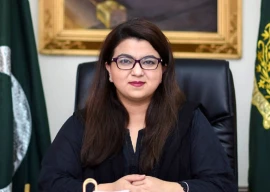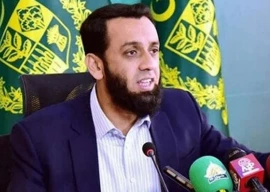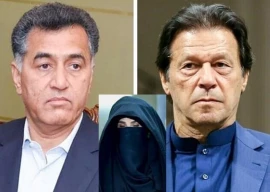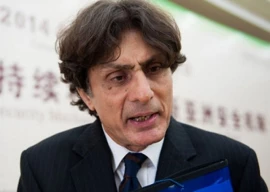
The government has set up a new National Austerity Committee to reduce public expenditures -- a move that might not be very helpful but has exposed its political vulnerabilities because of a decision to relegate the status of minister of state for finance.
It surfaced on Friday that a day earlier, the finance ministry had notified the formation of the National Austerity Committee under the chairmanship of Nasir Mahmood Khosa -- a retired civil servant and one of the PTI’s nominees for the post of the interim chief minister of Punjab.
Surprisingly though, Minister of State for Finance Dr Aisha Pasha has been made the co-convener of the austerity committee.
Dr Pasha is a member of the National Assembly and deputy finance minister, who has been asked to serve under a retired bureaucrat.
Dr Pasha is considered to be close to Prime Minister Shehbaz Sharif’s camp.
“Keeping in view the financial challenges being faced by the country, to conserve resources and to take austerity measures for ensuring rational utilisation of public money besides curtailing expenditure to reduce fiscal deficit, the prime minister has been pleased to constitute a National Austerity Committee,” read the notification issued by the ministry.
However, there is another contradiction in the notification.
The committee has been set up with effect from January 13, but its notification has been issued on January 19 by the Finance Division.
“The committee shall [give] its recommendations within 15 days for [the] consideration of the prime minister,” it added, but a week has already lapsed because of the contradictory dates in the notification.
Read ‘Energy austerity drive to be implemented’
The Finance Division will provide secretarial support to the committee.
The first meeting of the body has been convened next week.
The committee will give recommendations to reduce public expenditure and ensure fiscal discipline, according to the terms of reference issued by the finance ministry.
However, three-fourth of the country's budget is spent on only two heads -- the interest payments (about 50%) and defence (another 26%).
The committee might be unable to do much to reduce these expenses that required strategic decision-making by the military and civilian leadership.
Khosa told The Express Tribune that his focus would be on three priorities -- realising some fiscal savings on an immediate basis, enhancing the quality of spending in the medium period, and mitigating fiscal risks in the long term.
Khosa added that the objective of expenditure policy should be to support the economy by redistributing the resources.
“We will have an overall review first, and then examine the policy levers determining spending outcomes, debt management choices, development spending, subsidies, and state-owned entities. [We will then] realign expenditures in accordance with core constitutional mandates,” Khosa elaborated.
The other members of the committee are Special Assistant to the PM (SAPM) on Government Effectiveness Jehanzeb Khan; SAPM on Finance Tariq Bajwa; Adviser to PM on Establishment Ahad Cheema; secretaries of the Cabinet Division, Power Division and the finance and housing and works ministries; Capital Development Authority chairman; and the chief secretaries of Punjab, Sindh, Khyber-Pakhtunkhwa and Balochistan.
Read more Country is in crisis: PBC tells PM
Dr Kaiser Bengali, Dr Farrukh Salem, Dr Zubair Khan and Naveed Iftikhar are members of the body too.
“Neither did the government seek my consent before making me a member, not do I want to be part of its wrong decision-making process, said Dr Zubair while refusing to become a member of the committee.
Independent analysts do not think very highly about trying to run the country through committees -- a move that often proves to be ineffective.
It is generally believed that governments form committees to delay action as it is well known what steps were required to be taken.
In the past. many reports have been prepared under the guise of austerity and the reasons for the ballooning expenditures that are now causing around 6% to 7% of the GDP annual budget deficit are also known to everyone.
Apart from the exchange rate and revenue, to decrease expenditures the government needs to rationalise wheat subsidies and remove targeted industry financial support that was recently introduced.
There is also a need to impose austerity measures on recurrent costs, and sell off the loss-making government enterprises.
The decision to set up an austerity committee appears bizarre, particularly when the cabinet size is now more than 77, including SAPMs.
The finance ministry notification showed that the committee would recommend measures to economise government operations.
It will review and rationalise the size of the government to achieve optimal and smart organisational structures including a review of state-owned entities and corporations having redundant or overlapping functions.


















COMMENTS (2)
Comments are moderated and generally will be posted if they are on-topic and not abusive.
For more information, please see our Comments FAQ